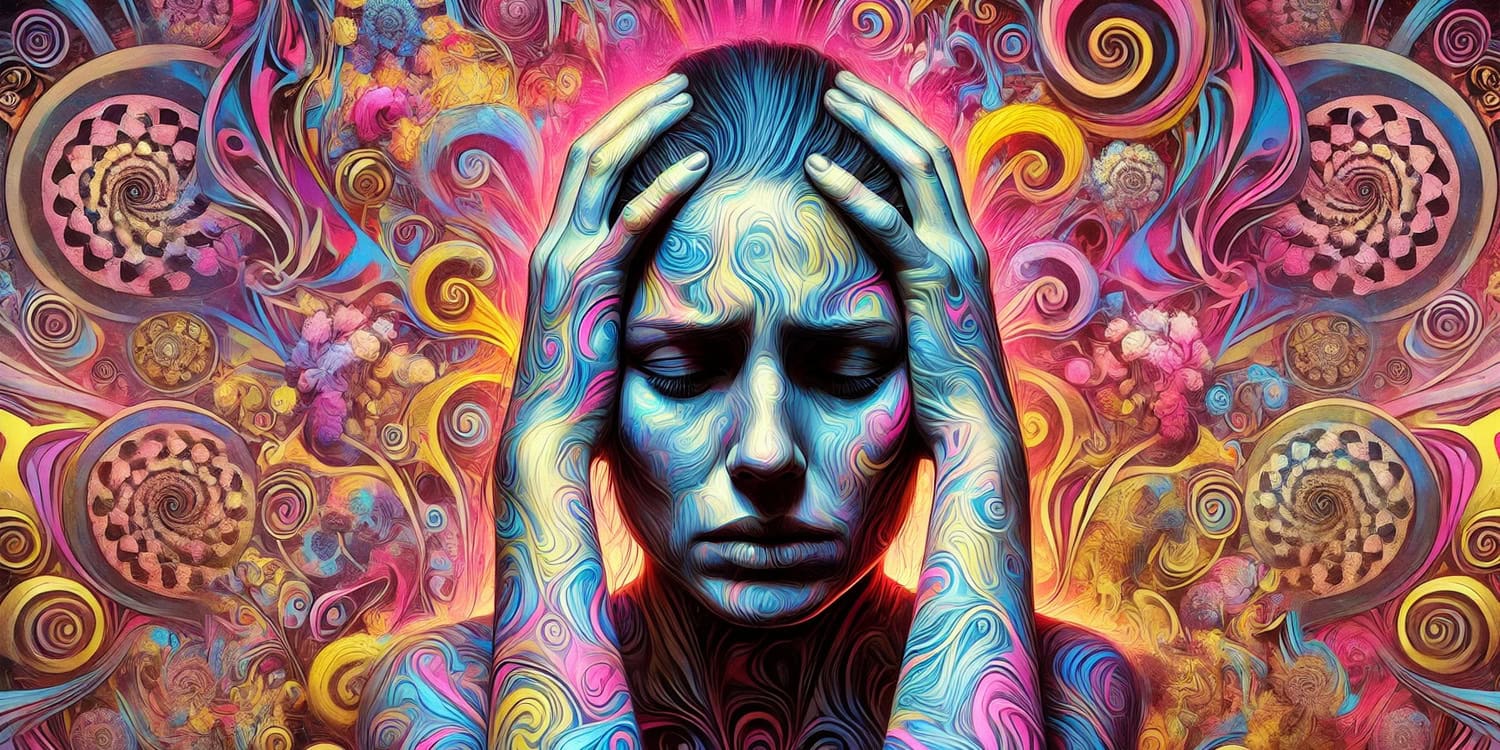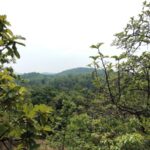A recent study published in Psychedelic Medicine has shed light on the challenging and sometimes distressing experiences that people can have during psychedelic use. The research found that a significant number of individuals who used psychedelics experienced adverse effects such as fear, sadness, trembling, and loneliness during their psychedelic journeys. Even more troubling, approximately 8% of respondents reported either being a victim themselves or knowing someone who had experienced inappropriate sexual contact by a psychedelic guide or practitioner.
Psychedelic substances are a class of drugs known for altering perception, mood, and cognitive processes. Common examples include psilocybin (found in magic mushrooms), LSD (lysergic acid diethylamide), and MDMA (commonly known as ecstasy). These substances produce profound changes in sensory perception, thought patterns, and emotional responses. People who use psychedelics often report experiencing altered states of consciousness and a sense of connection or insight that can have lasting personal significance.
In recent years, there has been renewed scientific and psychiatric interest in psychedelics, especially in their potential therapeutic benefits. Clinical studies have suggested that psychedelics may be effective in treating conditions such as depression, anxiety, post-traumatic stress disorder, and substance use disorders, particularly when combined with psychotherapy. Unlike traditional psychiatric medications, which often need to be taken long-term, psychedelics have been found to produce lasting psychological benefits after just one or a few guided sessions.
While much of the focus in psychedelic research has been on the positive outcomes, such as relief from depression or anxiety, there is less understanding of the possible negative experiences that can occur during or after psychedelic sessions. Given the increasing popularity of psychedelics for both recreational and therapeutic use, the researchers aimed to provide a clearer picture of the potential risks involved.
“Public interest in psychedelics may be at an all-time high and psychedelic use may also be at an all-time high. There is a lot of excitement about the potentials for psychedelic-assisted psychotherapy and people have read about this in popular books and in the news,” said study author Daniel J. Kruger, a research scientist and research associate professor at the University at Buffalo.
“Although there are just a couple of states which have created legal frameworks for psychedelic-assisted psychotherapy, several municipalities have decriminalized psychedelics and there are hopes that psychedelics may follow a path similar to cannabis legalization in U.S. states. Still, most individuals using psychedelics do so outside of therapeutic contexts, and most psychedelic retreats are unregulated.”
“We are interested in advancing the public health scope of psychedelics, including harm reduction. Psychedelic experiences can be very intense and even people who have used them many times can have difficulties. There were also reports of sexual abuse in unregulated international retreats and even inappropriate behavior by therapists in U.S clinical trials. At the time we conducted the study, there were no systematic assessments of adverse experiences among psychedelic users in general.”
To conduct this study, Kruger and his colleagues surveyed 1,221 individuals who had used psychedelics in non-clinical settings, meaning outside of tightly controlled clinical trials. Participants were recruited through social media, email lists, and at an event advocating for psychedelics in Michigan. The survey was designed to capture a wide range of potential adverse experiences, asking participants to report on their physical and emotional reactions during psychedelic experiences, as well as whether they had ever encountered inappropriate sexual contact from someone in a guiding or therapeutic role.
The sample of participants was predominantly white (84.6%) and included both men and women, as well as non-binary and transgender individuals. Most participants were from the United States, with a significant portion from Michigan. On average, participants were 39 years old and had used psychedelics for a variety of reasons, including recreational, spiritual, or therapeutic purposes.
The researchers found that many individuals experienced various negative emotions during their psychedelic use. The most commonly reported adverse experience was fear, with 74.3% of respondents indicating that they had felt frightened at some point during a psychedelic trip. For some, this fear manifested as a panic that the altered state might never end or that they would lose control of their mind. Nearly half of the participants (48%) expressed fears that their altered state would last forever, while 36.5% worried they might lose their sanity.
Sadness was another prevalent emotional experience, reported by 58.6% of participants. This feeling of sadness was often paired with other negative emotional states like loneliness, which was experienced by 51.6% of respondents. In many cases, these emotions were fleeting and not long-lasting, but their intensity during the psychedelic experience can feel profound. Participants also reported feelings of despair (48.7%) and isolation, with some describing these states as deeply challenging moments that tested their emotional resilience.
Another notable finding was the physical discomfort reported by a significant number of participants. Over half (54.3%) said they experienced shaking or trembling during their psychedelic trip. This physical sensation, although not necessarily harmful, can add to the sense of loss of control, amplifying the fear and anxiety already present in some users. Other physical symptoms included pressure or weight in the chest or abdomen (37.8%) and feelings of being dead or dying (37.7%).
“Psychedelic experiences can have challenges, many people experience being frightened, sadness, and feel their body tremble or shake at times,” Kruger told PsyPost. “Some people experience panic, paranoia, fell that they are dead, or that the state they are in will last forever. For most people having these experiences, they are rare or happen sometimes, but they are still significant.”
Participants were also asked whether they knew anyone who had experienced severe adverse events, such as psychosis, as a result of psychedelic use. About one-quarter (24.5%) reported knowing someone who had experienced a serious negative event. These events ranged from acute psychological distress to more persistent issues.
The findings revealed gaps in the availability of support during these crucial moments. Specifically, only 39.1% of those who knew someone who experienced a severe adverse event indicated that the person had guidance before their experience. The availability of guidance during the experience was even lower, with only 30.1% reporting that knowledgeable support was present at this time. After the experience, 44% of respondents indicated that the individual received guidance, but this still left more than half without proper post-experience support.
“Most of the people that experienced a severe adverse event did not have guidance from someone who was knowledgeable about psychedelics,” Kruger said.
One of the most serious findings from the study was the report of inappropriate sexual contact during psychedelic sessions. Approximately 8% of participants stated that either they or someone they knew had been the victim of such misconduct by a psychedelic guide, sitter, or practitioner. These incidents were primarily attributed to underground guides or sitters, who are not subject to the same ethical guidelines or regulatory oversight as professionals working in a clinical setting.
Friends and acquaintances were also implicated in some cases, further highlighting the risks present in unregulated or informal psychedelic sessions. Although less common, some instances of abuse were reported even within formal therapeutic settings, including clinical or research studies, which points to the need for stringent oversight in all contexts where psychedelics are used.
“A small portion of our participants knew about an incident of inappropriate sexual contact by a psychedelic sitter, guide, or practitioner, these were mostly underground guides and friends or acquaintances,” Kruger told PsyPost. “The lack of oversight makes it more difficult to protect people, as individuals may not want to report perpetrators out of fear of getting in trouble themselves and also the difficulty of pursuing legal justice in foreign countries they may be just visiting for the retreat. Having an informed public and accessible psychedelic-assisted psychotherapy that is well regulated would be ideal.”
But the study — like all research — includes some caveats. “The rates we reported are estimates, we used a convenience sample of participants,” Kruger explained. “There are currently no population representative studies on these topics, as they are very expensive. The large systematic survey studies just focus on how many people are using various substances.”
Nevertheless, the findings highlight the need to develop harm-reduction strategies that minimize the risk of adverse effects. This might involve better training for psychedelic guides and therapists, as well as clearer guidelines for ethical conduct during sessions.
“There is a lot of investment in clinical trials to obtain FDA approval for psychedelics in specific therapeutic applications. We conduct research that complements these efforts in promoting public health more broadly, as most people are still using psychedelics outside of clinical settings, even in places where psychedelic-assisted psychotherapy is legal. Legal psychedelic-assisted psychotherapy is very expensive.”
The study, “Psychedelic Therapist Sexual Misconduct and Other Adverse Experiences Among a Sample of Naturalistic Psychedelic Users,” was authored by Daniel J. Kruger, Jacob S. Aday, Christopher W. Fields, Nicholas Kolbman, Nicolas Glynos, Julie Barron, Moss Herberholz, and Kevin F. Boehnke.




